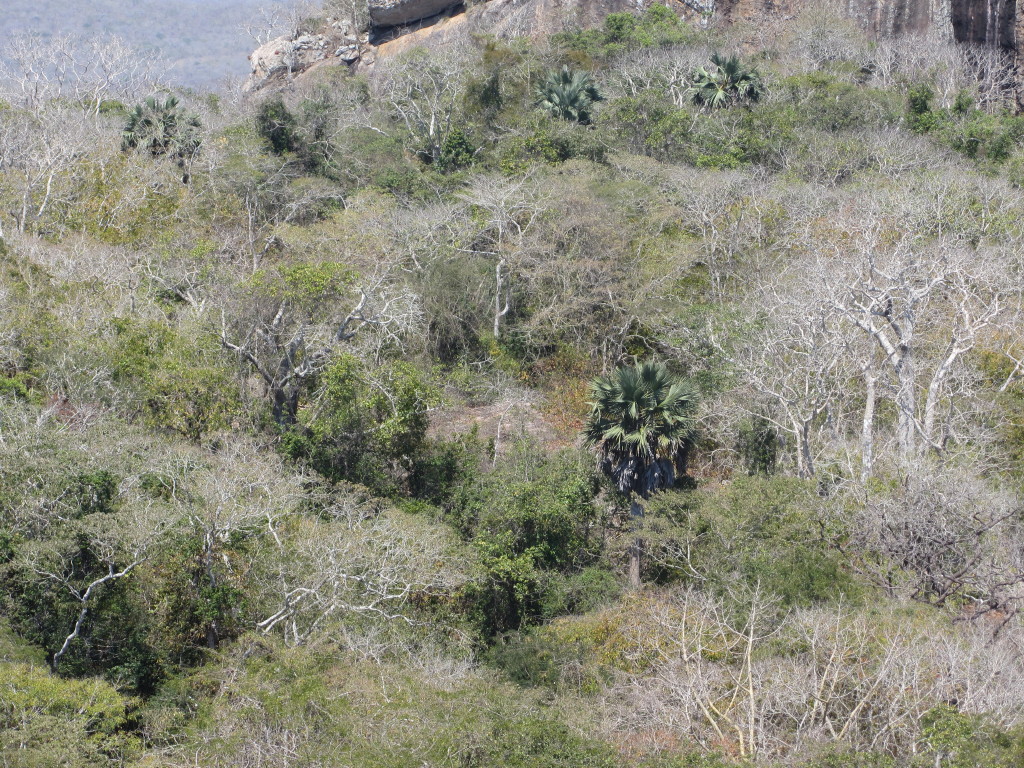Photo: Deciduous forest on the Yoloko inselberg near Pemba Mozambique. Photo credits Ton Rulkens via Wikimedia commons.
Introduction
Monitoring and evaluation (M&E) are recognized as useful instruments for effective and efficient project implementation and management. Monitoring and evaluation are used by organizations to ensure effective and regular data collection and analysis, information management and reporting in order to inform the status of projects and guide in strategic decision making on the same.
Over the last decade, AFF has been building an M&E system capable of assessing impacts of its activities among forestry stakeholders at all levels. AFF has undertaken a training needs assessment to further identify skills and capacity gaps on monitoring and evaluation, and more specifically among its members. The assessment has identified areas of capacity gaps mainly on accuracy of field data, timing for routine monitoring of projects, documentation of case studies and tracking of indicators. As part of improving the M&E system.
In this regard, AFF is therefore planning to train its members and the secretariat staff on aspects of monitoring and evaluation in order for them to effectively implement projects’ activities.
Objectives
To strengthen capacity of AFF members and staff through a virtual training on key aspects of M&E in project implementation. The specific objectives of the training are as follows:
- Introduce AFF members to Monitoring and evaluation systems and processes
- Improve understanding on M&E frameworks (Logical framework, theory of Change)
- Analyse the importance of M&E for accountability and reporting
Training Approach and Sessions/Content
This will be a one-day virtual training workshop to be held on 15th December 2021 via zoom platform as per the programme attached and covering the content summarized below. The training will be delivered through PowerPoint presentations, case studies group work and plenary discussions.
| Session | Session overview |
| Introduction to monitoring and evaluation |
|
| Monitoring and evaluation system(s) |
|
| Monitoring and evaluation frameworks |
|
| Putting it all together |
|
Participants
The virtual workshop will target African forestry stakeholders drawn from the AFF Secretariat staff, Governing Council members and partners from Anglophone Africa. This will facilitate deeper and wider discussions on key challenges and identify common monitoring and evaluation approaches, principles and best practices that could be applied for AFF projects’ activities.
Facilitator
The one-day virtual workshop will be facilitated by an experienced Design, Monitoring, Evaluation and Learning Expert recently contracted to provide training on online data collection and analysis.
Outputs and expected outcomes
The expected outcomes of the training are as follows:
- Improved understanding on the concepts, processes, tools and techniques for M&E and its role in project implementation;
- Enhanced knowledge and skills for developing M&E systems and frameworks as well as individual roles in performing M&E functions;
- Improved capacity on the need for institutionalizing Planning, Monitoring, Evaluation, Leaning and Reporting processes.
The recordings will serve as a basis for the production of additional resources for interested participants. More technical follow-up sessions will be considered according to the needs expressed by AFF and participants.
Deadlines
Interested African forestry stakeholders drawn from AFF members and partners in Anglophone Africa must confirm their participation via the following address: d.kobong@cgiar.org by 12 December 2021.
To download the concept note for more information, click here

